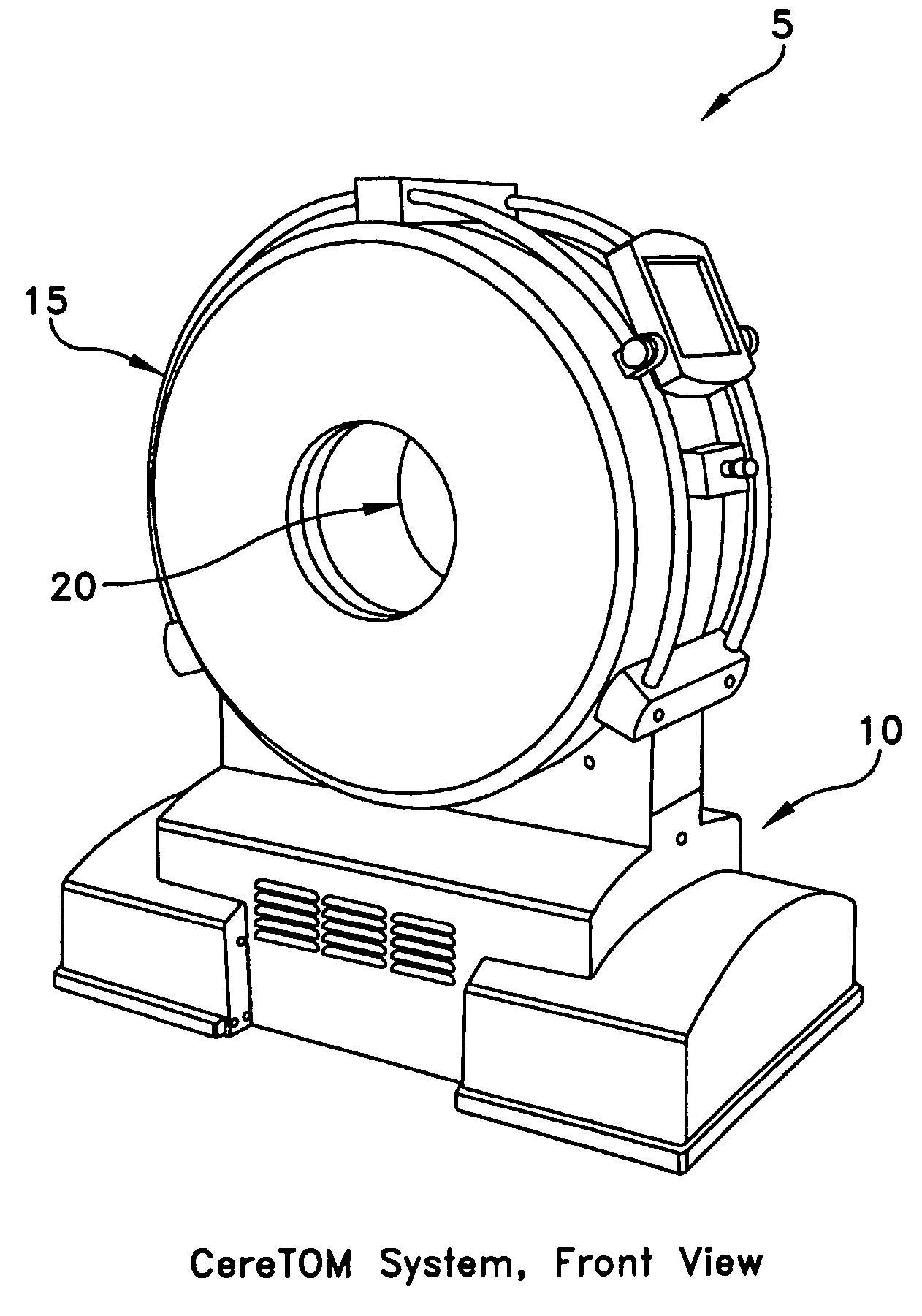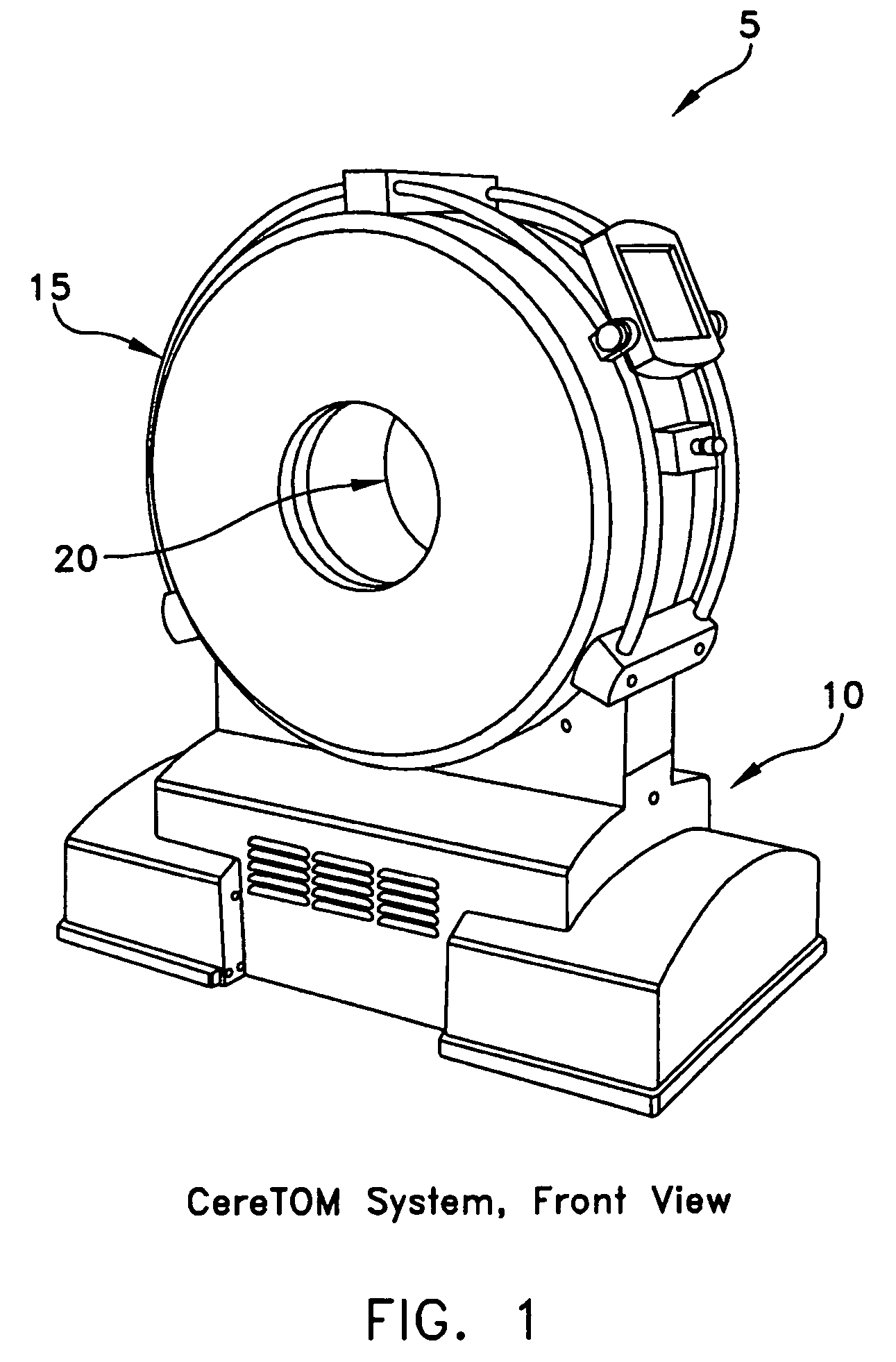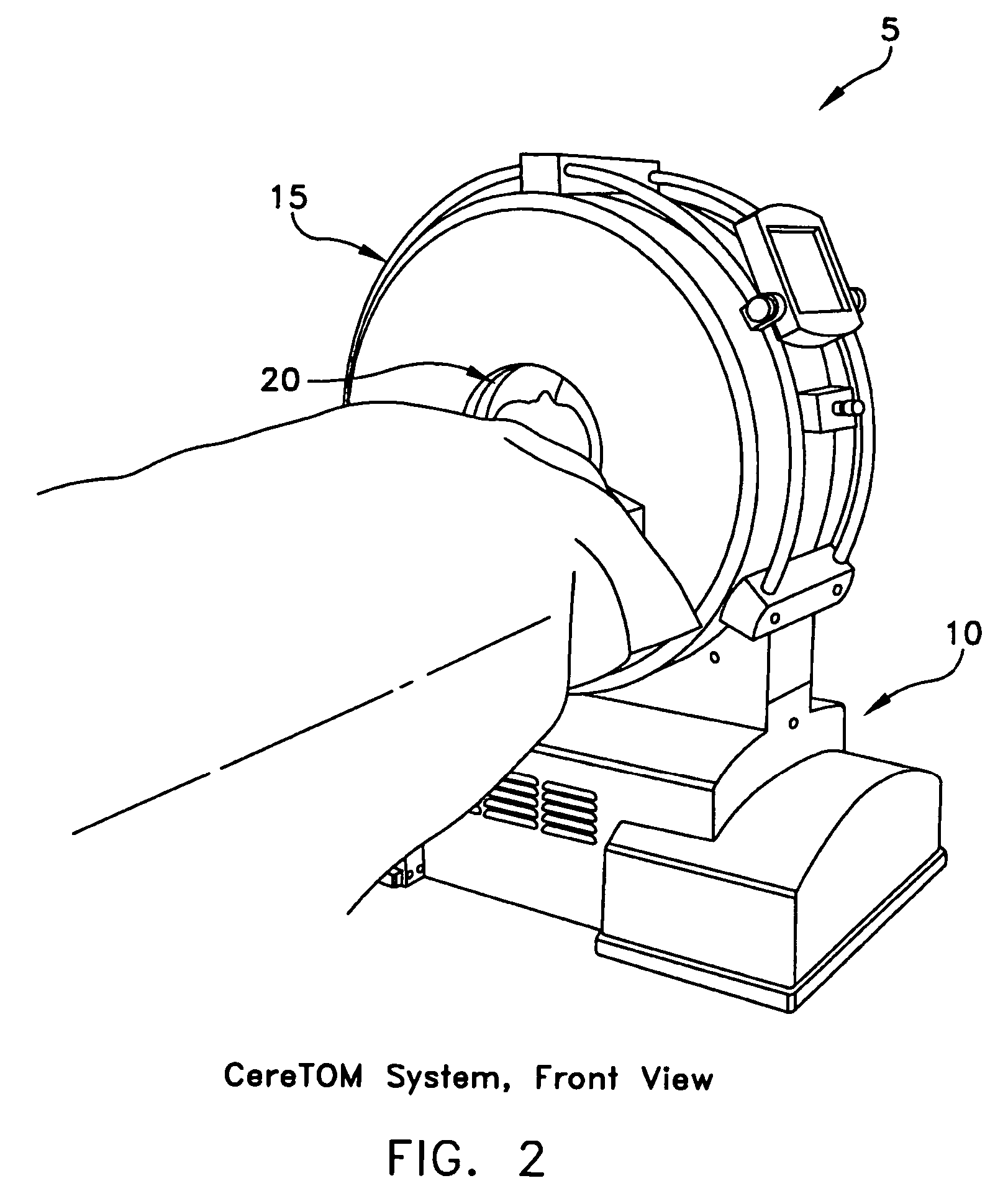Anatomical imaging system with centipede belt drive
anatomical imaging and centipede technology, applied in the direction of instruments, patient positioning for diagnostics, applications, etc., can solve the problems of time-sensitive effect of particular treatments, frequent “round-trip” time between the emergency room, radiology department (where the ct machine is typically located) and other problems, to achieve the effect of reducing diagnostic time, convenient transportation, and favorable image quality
- Summary
- Abstract
- Description
- Claims
- Application Information
AI Technical Summary
Benefits of technology
Problems solved by technology
Method used
Image
Examples
Embodiment Construction
CT Machine 5
[0051]Looking first at FIGS. 1–6, there is shown a novel CT machine 5 formed in accordance with the present invention. CT machine 5 generally comprises a base 10 which supports a torus 15. Torus 15 defines a center opening 20. Base 10 and torus 15 together comprise the CT scanning apparatus which is used to scan the patient anatomy positioned in center opening 20. Such scanning apparatus typically comprises a rotating X-ray source and X-ray detector, and various electronic hardware and software for controlling the apparatus and processing the acquired data so as to generate the CT scans. Such scanning apparatus may be of the sort well known in the art.
[0052]CT machine 5 also comprises the novel transport mechanism 100 which will hereinafter be discussed.
Transport Mechanism 100
[0053]As noted above, CT machine 5 is intended to be moved to the patient, and then scan the patient while the patient remains stationary on their gurney.
[0054]To this end, in one preferred form of ...
PUM
 Login to View More
Login to View More Abstract
Description
Claims
Application Information
 Login to View More
Login to View More - R&D
- Intellectual Property
- Life Sciences
- Materials
- Tech Scout
- Unparalleled Data Quality
- Higher Quality Content
- 60% Fewer Hallucinations
Browse by: Latest US Patents, China's latest patents, Technical Efficacy Thesaurus, Application Domain, Technology Topic, Popular Technical Reports.
© 2025 PatSnap. All rights reserved.Legal|Privacy policy|Modern Slavery Act Transparency Statement|Sitemap|About US| Contact US: help@patsnap.com



